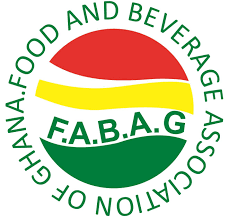The Food and Beverages Association of Ghana (FABAG) has firmly rejected proposals by utility providers to increase tariffs by more than 100% as a means of settling debts and improving services.
National Chairman of FABAG, Rev. John Awuni, argued that the solution to Ghana’s energy and utility sector woes lies not in drastic tariff hikes but in a comprehensive reset to address deep-rooted inefficiencies.
“Tariff increments are not new. They have never solved the recurring crises in the energy sector,” he said, warning that higher costs would only worsen the burden on households and businesses.
Rev. Awuni recalled how previous hikes in utility tariffs contributed to the electoral defeat of former President Akufo-Addo and the NPP, stressing that Ghanaians voted for the current NDC administration with expectations to “reset and realign” the sector for the benefit of citizens. He therefore urged President John Mahama to tackle corruption, inflated contracts, systemic losses, and inefficiencies rather than approve steep tariff increases.
While clarifying that FABAG is not opposed to moderate adjustments, Rev. Awuni emphasized that any increase must be linked directly to improved service delivery.
He also revealed that sales in the food and beverage industry have fallen by about 70%, creating ripple effects on tax collection. “The Ghana Revenue Authority is struggling to meet its targets because when sales decline, taxes decline too. Businesses are also suffering exchange rate losses due to the depreciation of the cedi,” he noted.
According to him, persistent tariff hikes could undermine the NDC’s flagship 24-hour economy initiative and force already distressed businesses to shut down.
FABAG urged energy and utility providers to strengthen debt collection and revenue mobilization rather than shift the burden onto consumers. Rev. Awuni pointed to previous debt recovery initiatives under earlier administrations as evidence that sustainable solutions exist without overburdening businesses and households.




